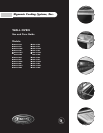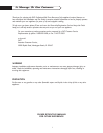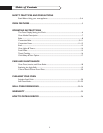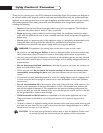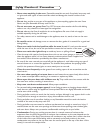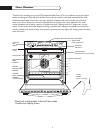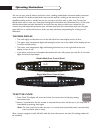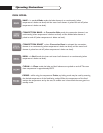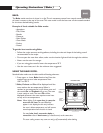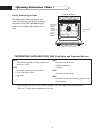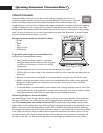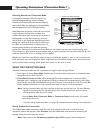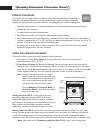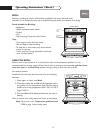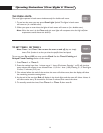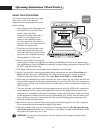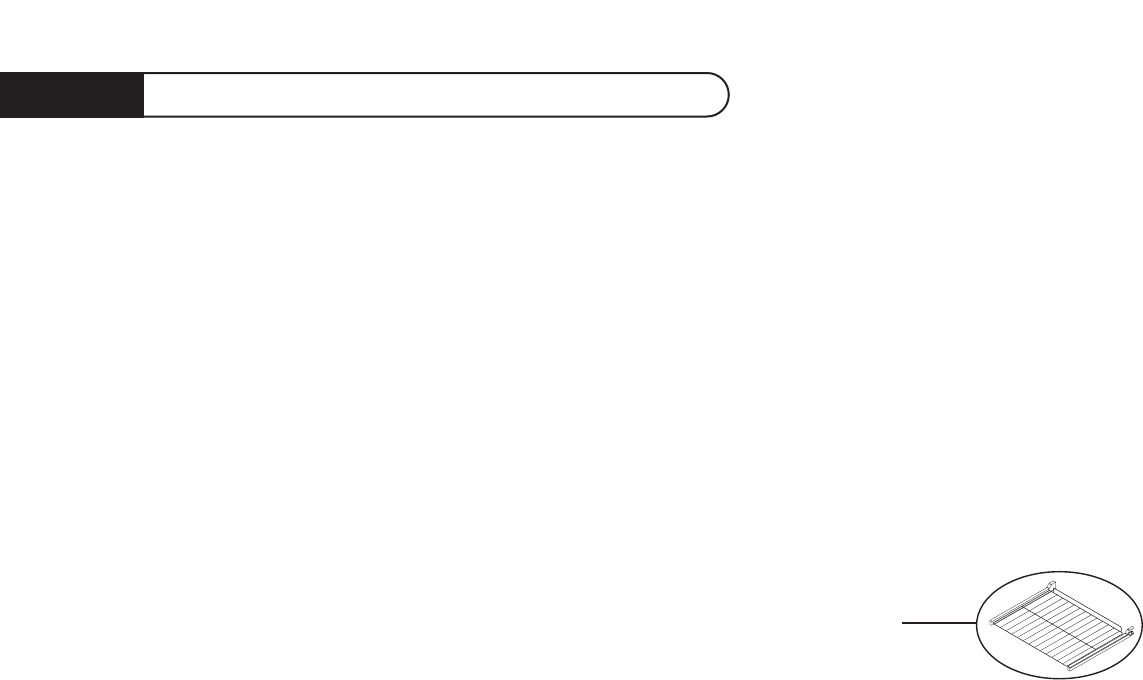
S afety Practices & P recautions
4
• Never store anything in the oven. Flammable materials can catch fire, plastic items may melt
or ignite and other types of items could be ruined and damage the interior surface of the
appliance.
•
Do not hang articles on any part of the appliance or place anything against the oven. Some
fabrics are quite flammable and may catch on fire.
•
Do not use water on grease fires. Turn OFF the oven, then smother the fire with baking
soda or use a dry chemical or foam-type fire extinguisher.
•
Do not obstruct the flow of ventilation air to the appliance. Be sure a fresh air supply is
available especially during the self clean.
• For safety reasons and to avoid damage to the appliance, never sit, stand, or lean on the oven
door.
•
Be careful not to rub, damage, move or remove the door gasket. It is essential for a good seal
during baking.
•
Place oven racks in desired position while the oven is cool. If a rack must be moved
while the oven is hot, do not let the pot holders contact the hot interior of the oven.
•
Place oven racks the right side up to avoid any burns or spilling of food.
• Clean the oven with caution. Avoid steam burns; do not use a wet sponge or cloth to
clean the appliance while it is hot. Some cleaners produce noxious fumes if applied to a
hot surface. Follow directions provided by the cleaner manufacturer.
• Be sure all the oven controls are turned off and the appliance is cool before using any type of
aerosol cleaner on or around the appliance.The chemical that produces the spraying action
could, in the presence of heat, ignite or cause metal parts to corrode.
•
Clean the oven frequently so that grease from cooking vapors do not accumulate on the
oven interior.
•
Use care when opening a hot oven door to avoid severe burns, open slowly, allow the hot
air or steam to escape before reaching in to remove or replace any foods.
•
Never open the oven door with children near by. They could come into contact with the
hot oven inner surface, resulting in severe burns.
•
Keep oven vent ducts unobstructed. Allow proper ventilation.
• For personal safety,
wear proper apparel. Loose fitting garments or hanging sleeves should
never be worn while using this appliance. Some synthetic fabrics are highly flammable and should
not be worn while cooking.
• During and after use do not touch the the interior surfaces, although it may appear dark in color
it may still be hot enough to cause burn injury, allow sufficient time to cool.
• During and after use, do not allow clothing or any flammable material to touch the interior
surfaces of the oven, as they may catch fire.
• During and after use, some exterior surfaces may become hot enough to cause burn injury if
touched, these are the oven vent openings and areas near these openings, oven window glass,
and oven doors.Always use a protective nonflammable cooking mitt or pot holder.
•
Condensation: During any cooking process there is a certain amount of moisture that
evaporates from the food, the amount of moisture that condenses on the oven depends on the
moisture content of the food.The moisture will condense on any surface that is cooler than that
of the inside of the oven.While baking with an extremely moist food product in the oven,
condensation may collect at the top oven near the control panel or the top of the door of the
oven(s) in use near the catalyst ducts.



